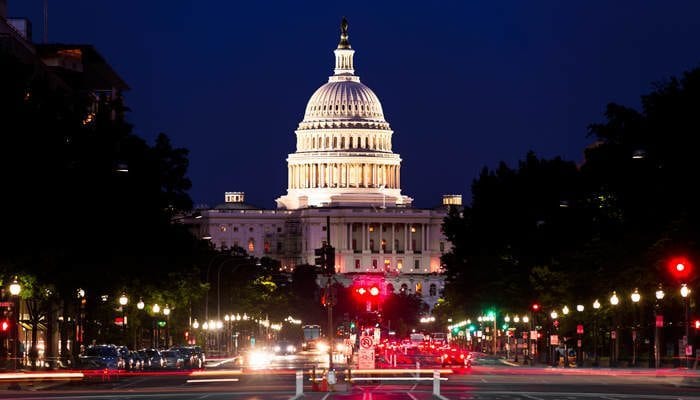Soon Congress is expected to vote on H.R. 1786, known more commonly to the public as “the James Zadroga 9/11 Health and Compensation Reauthorization Act.” And it’s about time: This is a crucial piece of legislation. The proposed amendment directly helps first responders who were injured at Ground Zero. Such a legislative move is already late in the game as some of the bill’s provisions already expired on Sept. 30th, 2015.
Advocates of 9/11 first responders – which amounts to a large number of American citizens – have been calling on legislators for months to get behind the bill’s extension. They’re also asking current politicians to go on the record about their positions on the bill – and in many cases, especially when it comes to Republican presidential candidates, all they’re getting is crickets.
What’s the Purpose of the James Zadroga Bill?
The original James Zadroga Health and Compensation Act of 2010 was named after the NYPD officer who died of a respiratory disease that many link directly to his rescue work in the aftermath of the 9/11 attacks. After Zadroga’s death, the bill was set up to provide financial compensation to first responders who were injured or contracted adverse health conditions due to helping out at ground zero. Such a bill is not only honorable – it’s necessary.
The bill funds a World Trade Center Health Program designed to provide qualified care to eligible patients, and also removes some caps on some compensation payments. Without an extension of the bill, the treatment program would have to be shut down, and many deserving people would have to pay for costly procedures out of pocket.
Many of the provisions of the James Zadroga Health and Compensation Act relate directly to lung conditions and diseases caused by the clouds of billowing dust that spread all over and beyond lower Manhattan after the World Trade Center towers came down. Many doctors would argue that the toxic dust – which was a volatile cocktail composed of known carcinogens such as asbestos, silica, and benzene – was one of the most serious health risks New Yorkers faced in the aftermath. The reasoning goes like this: you can take shelter from falling rubble, you can escape fire, and you can avoid broken bones and lacerations – but when you are exposed to extremely high levels of pollution, the effects can be irreversibly damaging. This type of hazard also evades easy treatment, and symptoms of many cancers can be slow to develop.
Asbestos – The Silent Killer
After some GOP foot-dragging in Congress, mesothelioma, a cancer caused by asbestos, was added to the bill’s list of covered conditions. According to a 2002 report by the Natural Resources Defense Council (NRDC), expert parties have estimated that around 400 tons of asbestos was used in building the Twin Towers, meaning that a large amount of the hazardous material went airborne in the building’s destruction. Asbestos, a known carcinogenic mineral, is heavily regulated by the Occupational Safety and Health Administration (OSHA) as it has been proven lethal when breathed in or ingested.
The James Zadroga bill, then, would provide some much needed assistance to those who have ended up suffering from lung problems and other related symptoms after pitching in heroically at Ground Zero. Since symptoms of certain cancers, including mesothelioma, may not present themselves for 20 - 50 years, there are concerns that many people will not get the justice they deserve – in future years – should the bill not pass through Congress.
“I think we should identify anyone that could have potentially had some exposure down there,” says thoracic surgeon Dr. Raja Flores who is at the forefront of the research studying the aftermath of 9/11 and correlated health problems. In a recent Citylab article, Dr. Flores stressed the likely link between exposure to 9/11 debris and higher cancer rates. Dr. Flores believes that there will be a major spike in 9/11-related cancer cases starting around the year 2020.

Political Brinksmanship – Examining Support in Washington, D.C.
It would be nearly impossible to find any average American citizen or Congressional representative who would argue the fact that 9/11 first responders were true heroes. And yet, it’s not surprising at all that the James Zadroga bill has become controversial. Investigating the numbers, it’s clear: The split seems to be between Democratic members of Congress, many of whom are beating the drums for the bill’s extension, and the Republican Party, who remain silent on the issue, while still utilizing the 9/11 attacks as a prominent talking point in campaign speeches.
The GOP taking 9/11 as an opportunity to wrap themselves in the American flag is nothing new. Their invoking 9/11 typically serves as a jumping-off point to claim that they keep American citizens safe from harm. But when it comes to protecting the heroic men and women who actually kept us safe at home by rescuing their fellow citizens and saving lives, the GOP turns a blind eye. The James Zadroga bill is the perfect example of this hypocrisy.
Rightfully so then, groups such as Citizens for the Extension of the James Zadroga Act have been pressing Republican politicians on their positions, in an attempt to win more vocal legislative support for an extension. But the trend remains steady: Nearly all of the candidates for the Republican presidential nomination have failed to respond to calls for a statement, and the few who have responded have seemed less than 100% supportive.
For one, Senator Lindsey Graham (R-SC) had frustrated some 9/11 first responder advocates by releasing a report showing he was “in the process of reviewing the current legislative proposal and examining whether it takes the best approach….”
While Graham’s initial statement demonstrated the kind of stonewalling that remains ever-present in politics, he, unlike many of his Republican peers, has recently become a sponsor of the legislation, garnering some appreciation from the activist movement promoting the bill’s extension. But Graham’s support of the Zadroga bill is clearly among the minority within his cohort.
Grassroots Action and the Big Screen
Much of the most prominent advocacy for the James Zadroga bill happened on cable television.
For several months, prior to his retirement, The Daily Show host Jon Stewart criticized politicians who seemed at all standoffish about extending the bill. Repeated segments on the show focused on the rank hypocrisy of trumpeting 9/11 messages on anniversaries and other times of the year, while failing to sign up to help suffering heroes. Stewart recently reiterated some of his feelings to Huffington Post:
“They’re treating this as though it’s just another sort of bridge, infrastructure bill, without urgency or any special conditions…We’ve got guys going like, ‘Oh, this is very interesting, we’ll definitely look into it,’ which is like, I guess what you would consider an ‘I have to stay home and wash my hair’ sort of brushoff…This seems like as unassailable a piece of legislation as you could ever find here…Why?”
Stewart’s comments add to a groundswell of public opinion where many people feel that Republican legislators should show more empathy and support for the country’s sick and injured heroes. And Stewart’s pointing out their hypocrisy is spot on: If we’re going to support our first-responders, then let’s stop the back-and-forth, and support them.
The first responders themselves are also coming out to support the bill. In June, some 50+ first responders from 9/11 visited D.C. to sit in on a House subcommittee discussion of the bill; the crowd was so big that it required the House to seek larger venue.
Politicians Join the Fight for 9/11 First Responder Bill
Some politicians who back the bill are also mincing no words when it comes to making the case for comprehensive support as provisioned in James Zadroga.
“We relied on our first responders to lead the rescue and recovery work at Ground Zero, in Shanksville and at the Pentagon – we cannot turn our back now when they need us most,” said Senator Kirsten Gillibrand (D-NY) in a statement in April.
“It’s our duty to make a lifelong commitment to these men, women and children,” said Congressman Sean Patrick Maloney (D-NY).
Gillibrand, Maloney, and various others have gone on the record to support the bill’s extension and specifically promote its contents – but advocates for the first responders are still discouraged by a lack of a unified legislative response as the extension deadline looms.
Reasons for Opposition Remain Unclear
Answers as to why so many of today’s leading Republican politicians remain silent on the James Zadroga Bill are scarce, but there are some clues that may present a slightly clearer picture of why politicians might drag their feet in supporting injured firefighters and rescue workers. Though, as many advocates would argue, it’s very much debatable as to whether or not Republican justifications are legitimate or not.
An article in The New York Observer quotes syndicated pundit Charles Krauthammer appearing on Fox News:
It’s not a question of cost, it’s a question of the absence of...scientific evidence conclusively showing a link between the illnesses and the activity at the 9/11 site. If America wants to say you are heroes, we want to recognize your service, and we are grateful, and as a result we’re going to generously offer you health care for the rest of your lives, that’s one thing. But this bill is called compensation, which assumes that we have scientific evidence of the relationship between the illness and the activity, which has not been established.
Such a statement by Mr. Krauthammer pays little attention to the real-life health consequences suffered by first responders, and further, his statement represents the Congressional indifference that ailing first-responders and their loved ones are faced with; day in and day out, they see that the ones who have the power to institute meaningful change are instead taking their time, while human lives are put on standby and left waiting in the lurch.
In a transcript from his radio show, talk radio personality John Derbyshire goes even further, calling proponents of the James Zadroga bill “New York’s whiniest” and suggesting that the bill is “another trial lawyer’s scam against the public.”
While these comments might be considered “brash” outliers, they aren’t. They are representative of a certain ethos – one that demonstrates how dismissive some pundits and politicians can be when it comes to helping the heroic Americans in need. In this case, these are people who sacrificed their own health and safety to save others, and paid a high cost.
In some cases, opposition might be based on a deep-seated principle towards the idea of compensatory settlements in general. It might also be knee-jerk opposition to “feeding” elements of unionized labor. Regardless, the nature of the opposition in these comments displays a cold shoulder towards civic responsibility and the common good. There’s also the even-colder suggestion that victims may be somehow misguiding courts, or lying about the extent of their injuries or how they became injured. Sadly, the autopsy of the bill’s namesake has become just one more lightning rod for this needless controversy.
Although not everyone in Washington is ready to fight for 9/11 first responders, large coalitions of advocacy groups, injury attorneys, and others are standing up to say that responsible citizens should agree: That caring for these heroes should be a top priority, not something to argue about or, in Jon Stewart’s words, “brush off.” The legislature has a responsibility to pass the James Zadroga extension – to help worthy individuals who have put themselves in harm’s way while serving the public in the worst possible conditions.
